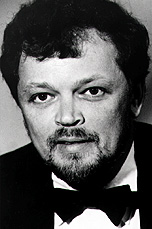 The Burghers of Blackheath did themselves proud this morning – so many tickets sold for Nikolai Demidenko’s Blackheath Sunday recital that they had to move the gig downstairs into the Big Hall. Or was that just a pretext to hire in a big clangy Steinway (I guess) and leave the lovely little Bösendorfer sulking upstairs?
The Burghers of Blackheath did themselves proud this morning – so many tickets sold for Nikolai Demidenko’s Blackheath Sunday recital that they had to move the gig downstairs into the Big Hall. Or was that just a pretext to hire in a big clangy Steinway (I guess) and leave the lovely little Bösendorfer sulking upstairs?
(There’s something about Demidenko’s appearance – short, hunched, bear-like, little beard, businesslike, unsmiling but not humourless – that reminded me of someone. I can’t quite think who it is: Malcolm Lowry? Arnold Dolmetsch? Peter Warlock? John Ogdon?)
I am forever grateful to the Powers that Be for setting Beethoven’s so-called ‘Moonlight’ Sonata, Op. 27 No. 2, on our O-level syllabus a hundred years ago – so I know it well, or so I thought. Nick Breckenfield’s fascinating programme note dismissed the ‘moonlight’ tag, but revealed that the first movement is a meditation on the music for the death of the Commendatore from Mozart’s Don Giovanni, a fact which I certainly had not come across before. This makes sense of the Sonata’s subtitle – ‘quasi una fantasia’: meaning not ‘an apology for not being in the sort of sonata form you’re used to’, but ‘like an improvisation’ on an idea by Mozart. An illuminating insight into Beethoven’s creative processes.
A friendly Burgher of Blackheath (who shall be nameless) was absent, as she’d been to a previous recital by Demidenko and said she couldn’t stand the way he played – he ‘bashed the hell out of Schubert’. In the first movement of the ‘Moonlight’, my worst fears seemed to be confirmed. The sound was dry, too loud, and broken up by little hesitations before barlines or even beats – the opposite of the constant flow of triplets the music surely needs. I guess (I couldn’t see his feet) that Demidenko was using hardly any pedal – in contradiction of Beethoven’s instruction to play ‘without dampers’, i.e. with the pedal down all the time (which admittedly wouldn’t work on a resonant modern piano, producing an impossibly muddy effect). Not pleasant.
Liszt called the tiny (more…)
Recent Comments